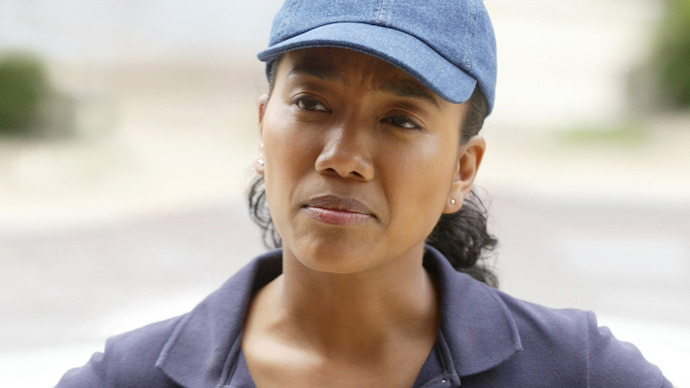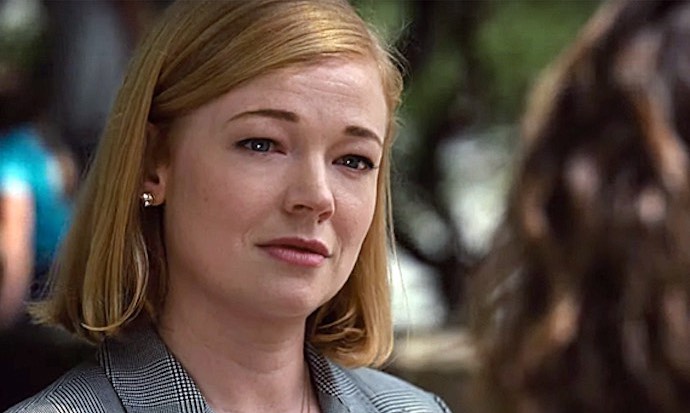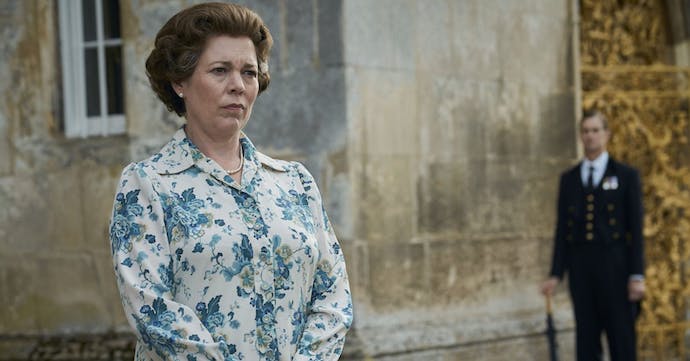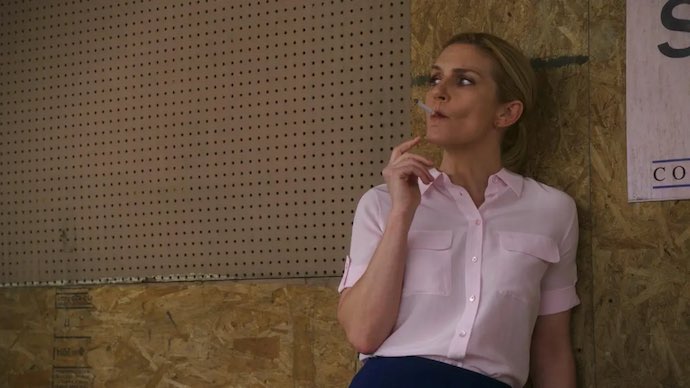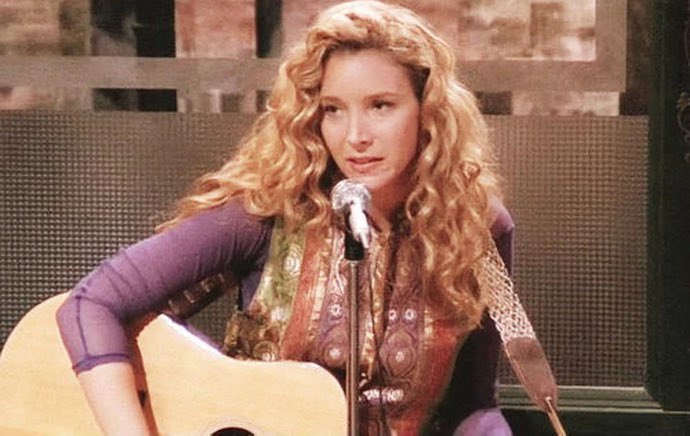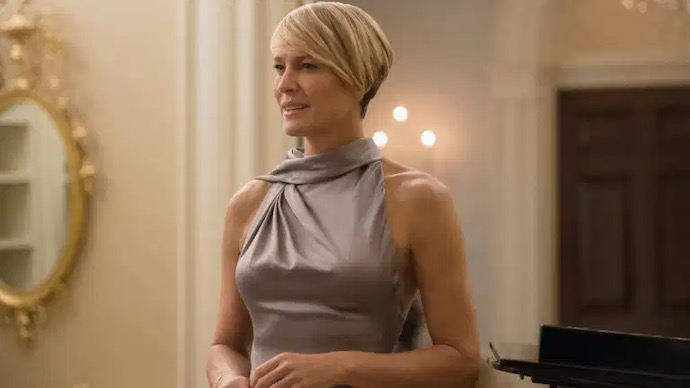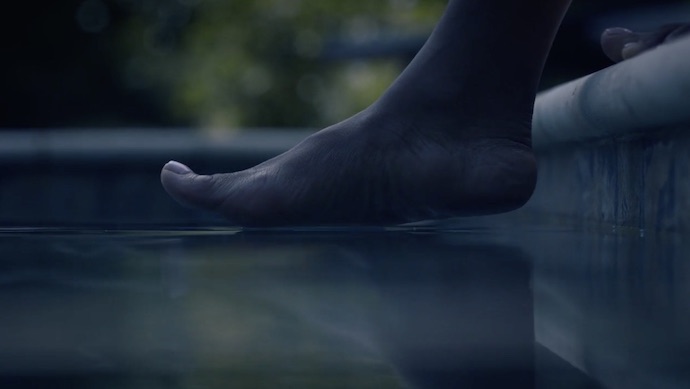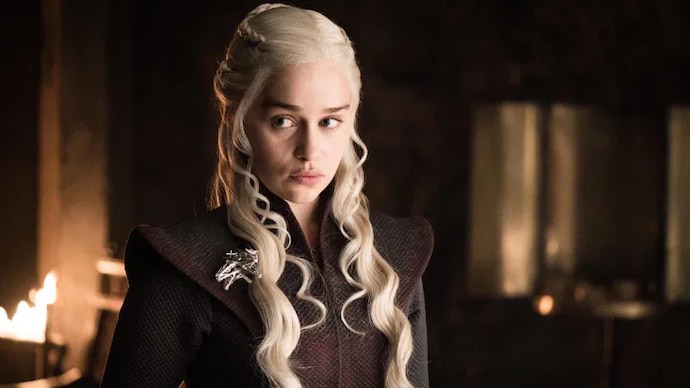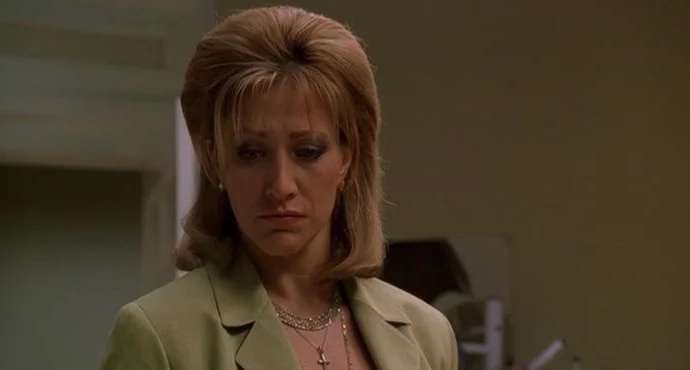From comedy series to romance series, from action series to drama series, we’ve seen some truly phenomenal TV performances over the past few years. Many of these will go down as historically, socially, and culturally iconic—and we’ve only just begun. In case you missed them, here are the best female TV characters of all time, why they’re so great, and how they’ve pushed TV culture forward with their existence.
10. Kima Greggs (The Wire)
Upon rewatching The Wire nearly 20 years after it first aired, a few things stand out. First, Michael B. Jordan’s performance is excellent. Second, Omar as a character was so ahead of his time. Third, the character of Kima Greggs was severely underrated. Sonja Sohn portrayed Kima with a real sense of attitude and grit. She was often in the line of fire, yet seldom shown to be scared. Her friendship with McNulty anchored her throughout the series, and the pair often felt like siblings in how they treated one another. Kima was also one of the first examples on TV of a woman in a same-sex relationship. The Wire did a great job of not making that a big deal, while using it to show that Kima had issues with emotional bonding and trust. Overall, Kima was one of the most compelling in the series.
9. Siobhan Roy (Succession)
Siobhan Roy exudes power in the way she walks, the way she talks—everything about her lets you know she’s not to be messed with. Sarah Snook deserves kudos for playing Shiv with a strutting sense of authority, all while hiding a softer side. Her upbringing within the family dynamic shows us that she had to be tough to survive. Whereas Kendall often shows weakness, Connor often lacks a spine, and Roman is often an idiot, Shiv is everything like her father: cunning, clever, and ruthless when needed. That makes her more of a man than her brothers, and that’s why she’s so interesting to watch.
8. Queen Elizabeth II (The Crown)
Two actresses have played Queen Elizabeth II in The Crown, and both have done so magnificently. Claire Foy and Olivia Colman embody what it’s like to be charged with a duty to one’s country as The Queen is. Her trepidation in having to become Queen at such a young age gives way to a sense of restraint in her wielding of constitutional power. Where Foy gave Elizabeth a fire of youth and passion, Colman formed her into a woman that knew her place within British culture. To portray a woman who has held The Monarchy together through the 20th and 21st centuries requires a delicate touch, and both Foy and Colman brought that to the series in bundles.
7. Kim Wexler (Better Call Saul)
The only failure of Breaking Bad was that its female characters were generally not so compelling. But when Vince Gilligan and Peter Gould came to Better Call Saul, they fixed that with Kim Wexler. Kim’s journey has been, by far, the best one to watch on Better Call Saul. She started as a moral and just person who has since become the dark creature she fought so hard not to be. She’s smarter than Jimmy, Howard, and pretty much any other character in the series—which makes her fall into a conniving, cheating lawyer one of the greatest tragedies of the Breaking Bad universe. Rhea Seahorn’s slow-burn performance is outstanding, and she’s made Kim so sympathetic that the audience would always look to her for moral judgement. Now, that’s gone—and Kim’s mind has been warped by both greed and Jimmy.
6. Phoebe Buffay (Friends)
Phoebe was the one character in Friends who had a background packed full of true pain, loneliness, and misery—and yet, even after all of that, she never stopped being the happiest of the bunch. Whenever Phoebe revealed parts of herself that we’d never heard about before, it just made us realize how fortunate the rest of the gang had been in their upbringings—and how their complaints ultimately felt quite petty compared to Phoebe’s past. Lisa Kudrow’s endlessly optimistic performance made Phoebe into a kind of wall that we could peek behind every so often. And when we got those occasional peeks, we saw that she had been through things the rest would never have been able to cope with. Between her moments of pain and elation, she held the audience’s attention as no other character could, and as the years have gone by, Phoebe Buffay’s legacy has far outweighed the others.
5. Claire Underwood (House of Cards)
Cold, calculating, unscrupulous, utterly vindictive. How else would you define Claire Underwood? Near the start of House of Cards, Claire doesn’t seem to have the same level of ruthless brutality as her husband Frank. But as the seasons go on, we see that she’s had all of that (and more) in the tank. Her ability to mislead, betray, and tear down those in her way is just as potent as Frank’s is—and she does it while maintaining a stoic dignity. Robin Wright’s iconic character was forced to shoulder the burden of the final season after Kevin Spacey was fired from the show. Yet even if the writing wasn’t up to scratch, her performance certainly was.
4. Angela Abar (Watchmen)
Watchmen is an HBO miniseries based in the same universe of the titular comic books, and when it landed, it hit like an atom bomb for comic book fans. To attempt a sequel for such an iconic comic book series? That put it under intense scrutiny. Fortunately, Damon Lindelof was up to the task and brought in Regina King to lead the cast as Angela Abar. She was inspired in her character, who portrayed—in no uncertain terms—just how racist American society can still be, and she kicked ass the whole way through. A hero, a mother, and the wife of a god—Angela Abar might have become a living god herself, but we’ll never know. King won a lot of awards for her role, and the series is regarded as a masterpiece.
3. Daenerys Targaryen (Game of Thrones)
Few women characters on TV have ever inspired the kind of fear in one’s enemy that Daenerys Targaryen could. Through eight seasons of Game of Thrones, she built herself up from being sold as a wife to commanding the largest army in Westeros. Despite constant opposition from others like Cersei, there was always the sense that Daenerys would succeed where people like Cersei would fail. And she did succeed, though not for very long. Ignoring the controversial character decisions by the writers in the final season, Daenerys was, for the most part, a well-intentioned yet merciless queen who wanted what was best. Emilia Clarke portrayed her with such dignity that the spirit of the Mother of Dragons continues to live beyond the show.
2. Lisa Simpson (The Simpsons)
If you’re looking for a television role model for young woman everywhere, Lisa Simpson has been the one for a long time now. To sum it up, she’s intelligent, kind, caring, funny, and humble. As the middle child of Homer and Marge Simpson, Lisa has often proved herself to be: a wise sage, a supporting sister, and a gentle daughter. Everyone knows that she has a great future in front of her, but Lisa’s ability to do the right thing sets her apart as special. She might stray into arrogance and hubris at times, but she always has her family to pull her out of it. The fact is, Lisa Simpson was a 21st century young woman long before the 21st century arrived—and has been a positive influence on young women worldwide.
1. Carmela Soprano (The Sopranos)
The greatest TV series of all time wasn’t actually about the crime boss of an organized crime outfit—it was about that crime boss’ wife. Although Tony Soprano was the show’s focal point, Carmela Soprano was the beating heart of The Sopranos. She was the intelligent head of the family. Edie Falco created something special in Carmela Soprano, both as a strong woman who knew the way of the world and as a person who could say anything to Tony while knowing he’d never retaliate. Her relationship with her volatile husband was one of the very few relationships in the series that never broke. It came under immense strain at times, but there was always love there. She wasn’t scared of Tony, and that made her unique in the show—even if he wasn’t above hurting women, he never physically hurt her. And that foundation of quiet resolve and clever mind is the kind of strong female character we need more of on TV. Read next: Why The Sopranos is the greatest TV series ever
![]()
